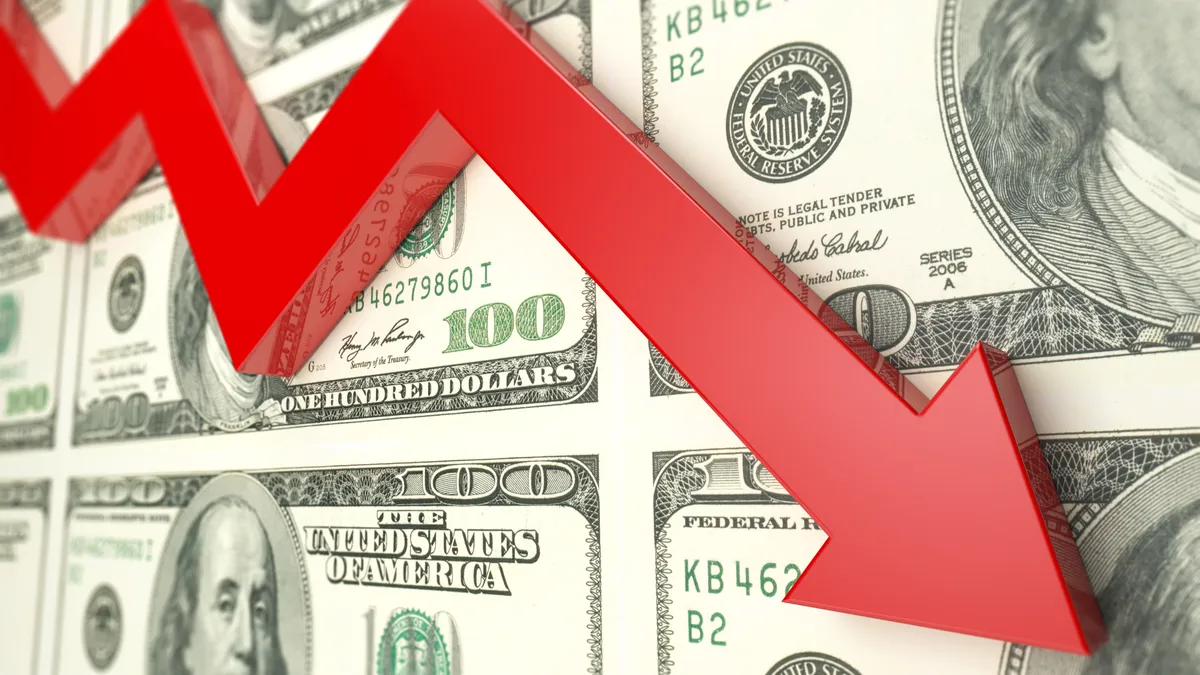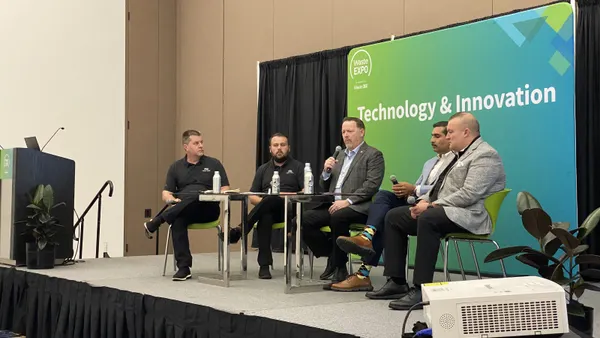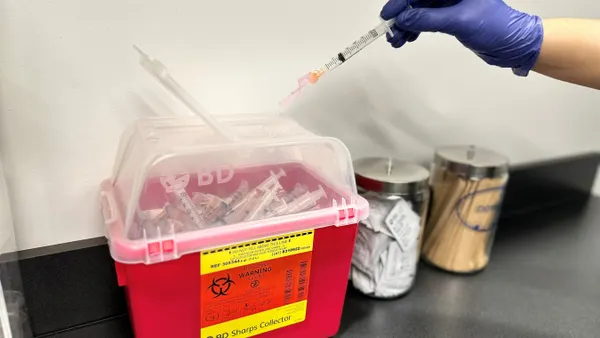Dive Brief:
- The U.S. economy probably will not grow this quarter and, after more weakening, may fall into a brief recession by early next year, the Conference Board said Thursday, citing its Leading Economic Index.
- “Consumer pessimism and equity market volatility — as well as slowing labor markets, housing construction and manufacturing new orders — suggest that economic weakness will intensify and spread more broadly throughout the U.S. economy,” according to Ataman Ozyildirim, senior director for economics at the Conference Board. “The economy could tip into a short but mild recession by the end of the year or early 2023.”
- The LEI, which projects the economic outlook seven months ahead, fell 1.6% from January to July after rising by the same amount during the previous six months, the Conference Board said.
Dive Insight:
The Conference Board’s bleak forecast adds to several recent warnings by economists that the U.S. is headed toward at least a mild downturn sometime during the next two quarters.
Factors including housing market weakness, the highest inflation in four decades, geopolitical turmoil, flagging manufacturing and crimped supply chains will likely bring on an economic slump, they say. Also, the Federal Reserve risks triggering a recession as it tries to curb price pressures by raising the federal funds rate at the fastest pace since the 1980s.
CEOs share the pessimism, according to results of a survey by the Conference Board and Business Council released Wednesday. Four out of five CEOs (81%) are preparing for a brief, shallow recession during the next 12 to 18 months, with 12% predicting a deep downturn that will harm global growth.
“CEOs are now preparing for the near-inevitability of a U.S. recession by year-end or in 2023,” Business Council Vice Chair Roger Ferguson said in a statement. Only 7% of top executives predict sustained growth.
The U.S. may already be experiencing a downturn. The economy shrank 0.9% during the second quarter after slumping 1.9% during the first three months of 2022, meeting the common definition of a recession as at least two consecutive quarters of negative growth.
Three out of four CEOs (77%) said general economic conditions had worsened since the second quarter, according to the survey. During the prior survey, 61% of CEOs said the economy deteriorated from the first to the second quarter.
CEOs identify inflation as their top challenge, with three out of five saying input costs during the past three months have either held steady or increased, according to the survey.
During the next 12 months, half of CEOs plan to expand payrolls compared with 63% during the second quarter, the survey found. Similarly, 82% of CEOs plan to expand capital spending compared with 93% during the April-to-June period.
Although less optimistic about the economy, CEOs “report conditions and intentions at their own firms that paint a more nuanced picture,” Conference Board Chief Economist Dana Peterson said in a statement. For example, three out of four CEOs “say demand has risen or held steady over the past three months.”
Indeed, the economy shows some glimmers of vitality. Consumer spending remained solid last month, the Commerce Department said Wednesday. Also, the unemployment rate in July fell to 3.5% — the lowest since the start of the pandemic in early 2020 — as U.S. employers far outshone forecasts and expanded payrolls by 528,000.
The Conference Board’s LEI tracks 10 data sets, including average weekly hours in manufacturing, average weekly claims for unemployment insurance, building permits, the Standard & Poor’s 500 Index and the spread between the federal funds rate and 10-year Treasury bond.














